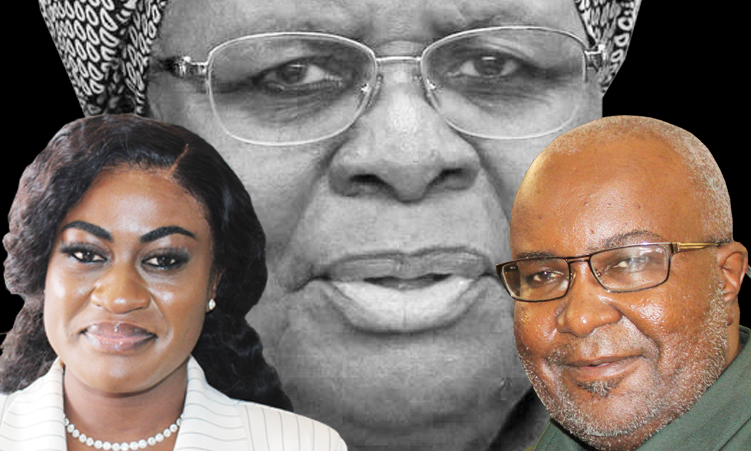One might think that Namibian artists possess a special ability to compose, record and produce tracks at lightning speed, possibly writing verses while the doctors are still checking for a pulse on the deceased.
Studios must have an ‘In Case of Death, Press Record’ button ready to go the moment news of a death breaks, complete with pre-written lyrics and sad instrumentals.
Look at all the songs released within hours from the announcement of a person’s death and you’d think they had the tracks recorded days in advance, just waiting for the green light.
I mean, Ally Tobias, Samuel Shines and several others have poured their hearts out in record time, with Tobias’ song being out so fast one might think she was livestreaming from the press briefing.
The biggest worry is with Big Ben, who seemed to release a song before the president could say “Longo live Namibia”.
Young T in the north seems to have caught the tribute flu too. Oh, and Shikololo is suddenly alive and kicking it up on stage with Ondjila-what-what. Let’s leave Ndilimani out of this because they actually have to wait for a command from headquarters.
But let’s get to the funny thing about tribute songs in Namibia: we hear nothing from the music industry when the country is up in arms over road carnage or rallying against corruption.
The same artists who scream out heartbreaking ballads, seemingly overnight, are suspiciously silent when it comes to addressing societal ills. When gender-based violence makes headlines, the microphones go cold.
But let a prominent leader die, and suddenly every singer with access to a studio is belting out their most dramatic, tear-jerking melodies. One could almost believe there’s a WhatsApp group called ‘Tribute Hitmakers’, buzzing the moment a headline drops: “Alright team, you know the drill. Key of C minor, tempo at 70 to 90 BPM for maximum tears.”
Now, don’t get me wrong, paying homage to leaders is understandable – misery and pain sell better, after all. But the consistency and predictability of these tributes are so obvious that one could set a watch by them.
When news of Sam Nujoma’s death broke, it took no time at all for airwaves and social media to be flooded. One could almost imagine the ‘Tribute Songwriter’s Guild’ convening the minute the funeral bells began to toll, debating whether ‘legacy’ or ‘aluta’ sounds better with a soft piano intro or a slow drum roll.
It’s easy to see that Namibian musicians seem to only write when people die.
Maybe they get excited about news of a person’s death or their creative spark is only triggered by national grief? If this is the case, then may we please invite them all for a dinner at the mortuaries across the country to spark the music industry? As a matter of convenience, let’s give them all wristbands that allow them unhindered access to mortuaries every time they need to record a song.
This might be the only way to make sure we hear those powerful voices when the living need it the most.
When Namibians took to the streets in protest against corruption, there was no chorus of solidarity. When the nation mourned victims of rape, not a single note of reflection was heard. If musicians truly are the voice of the people, then they must be waiting for the people to deliver eulogies before they find their inspiration.
It is quite disturbing that they would record songs at their own cost for a tribute, but they will ask for sponsorships and handouts when it is time to sing about the everyday plight of Namibians.
Instead, they wait – quiet and patient – until the next prominent leader breathes their last breath.
Then, right on cue, they will flood the airwaves with perfectly polished eulogies, complete with tear-jerking choruses and dramatic key changes, like they’re competing for the prestigious ‘best bereavement ballad’ award, complete with choir harmonies and melancholy guitar solos.
One can’t help but think that maybe, just maybe, their creativity thrives more in funerals than in festivals of life.
So, what’s the funny thing about tribute songs? It’s that they prove our artists know how to feel – they just don’t know how to feel for the living.
Stay informed with The Namibian – your source for credible journalism. Get in-depth reporting and opinions for
only N$85 a month. Invest in journalism, invest in democracy –
Subscribe Now!










